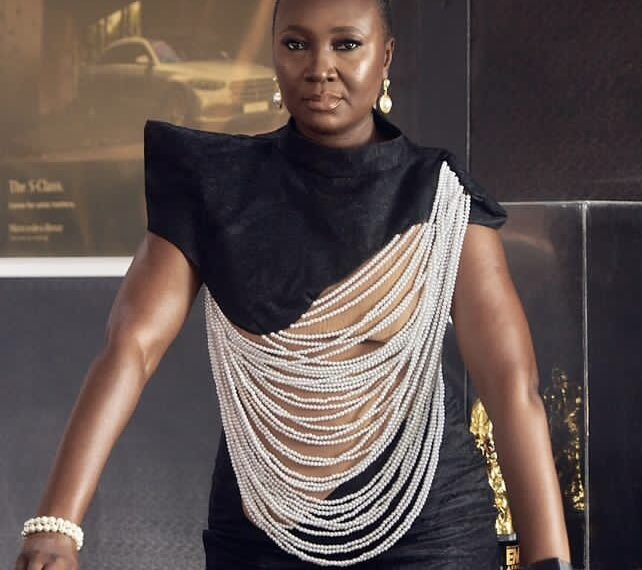There is always a price to pay for freedom
Freedom, morality and the law are three pillars upon which the structure of a just and civilised society rests. Each element is intricate and dynamic, influencing the others in a delicate dance of rights, responsibilities, and social order. In this exploration, we delve into the complex interplay between these concepts, probing the tensions and synergies that arise when they intersect.
When cross dresser, Idris Okuneye, popularly known as Bobrisky, was arrested, charged, and jailed for Naira mutilation, the social media was agog with whether this was the actual reason he was arrested. A majority of the audience believe that though there subsists a law – The Same-sex Marriage (Prohibition) Act 2011, which imposes a 14-year prison sentence on anyone who “[enters] into a same-sex marriage contract or civil union,” and a 10-year sentence on individuals or groups, including religious leaders, who “witness, abet, and aid the solemnisation of a same-sex marriage or union.” It imposes a 10-year prison sentence on those who “directly or indirectly make [a] public show of [a] same-sex amorous relationship” and anyone who “registers, operates, or participates in gay clubs, societies, and organisations,” including supporters of those groups, it says nothing about cross-dressing.
The brouhaha blew up when Idris won an award as the Best Dressed Female at a movie premiere. The question was while Idris had the freedom to cross dress – and there is no subsisting law to stop him from cross-dressing and calling himself a woman, was it morally justifiable for him to win in a category for females?
Now, this is where we see the interplay of freedom, morality and the law. While Idris has the freedom to do whatever he wants to, in the strict sense of the word, he and the rest of us in the world are not one hundred percent free to do what we want, when we want and how we want. Our freedom is subject to the morality of the wider society in which we live in. While the definition of morality is simple – the principles of right and acceptable against what is wrong and unacceptable -, it is complex in application. Both freedom and morality are regulated by law. The law governs everybody and is not subjective like the first two. So, assuming that the speculation as to why Idris was arrested is right, the law applied to incarcerate him was rock solid.
At the heart of human existence lies the innate desire for freedom – the ability to act, think and express oneself without undue constraint. It is a fundamental aspect of human dignity, embodying the autonomy and agency that define our individuality. Freedom encompasses not only the absence of physical coercion but also the presence of opportunities and choices that allow individuals to pursue their goals and aspirations.
However, the concept of freedom is not without its challenges. The exercise of one person’s freedom may sometimes impinge upon the freedoms of others, leading to conflicts and tensions within society. Moreover, the boundaries of freedom are often subject to interpretation, with differing views on where individual rights end and collective interests begin.
Morality serves as a guiding framework that shapes our understanding of right and wrong, good and bad. Rooted in cultural norms, ethical principles and personal beliefs, morality provides a moral compass that informs our decisions and actions. It serves as a check on our freedom, encouraging us to consider the consequences of our choices on others and society.
Morality is inherently subjective, influenced by factors such as upbringing, religion and social context. What one person considers morally acceptable, another may deem reprehensible. Yet, despite these differences, there exists a common thread of basic moral principles – such as fairness, compassion and respect for human dignity – that underpin our collective moral framework.
In the tapestry of society, the law functions as the formalised expression of communal values and norms. It provides a set of rules and regulations that govern behaviour, delineating the rights and obligations of individuals and institutions. Through its system of enforcement and adjudication, the law seeks to maintain order, resolve disputes, and protect the rights of all members of society.
The law serves as a bridge between freedom and morality, translating abstract ethical principles into concrete legal standards. It sets boundaries on individual behavior, balancing the pursuit of personal liberty with the need for social cohesion and stability. Moreover, the law evolves over time in response to changing societal values and moral perspectives, reflecting an ongoing dialogue between freedom, morality, and justice.
The interplay between freedom, morality and the law is characterised by a complex web of relationships, where each element influences and shapes the others in profound ways. At times, these forces align harmoniously, reinforcing one another to promote the common good. Yet, there are also moments of tension and conflict, where competing interests and values collide, demanding careful navigation and resolution.
One such area of contention lies in the tension between individual freedom and collective responsibility. While freedom empowers individuals to pursue their own interests and aspirations, it also requires them to consider the impact of their actions on others. Here, morality serves as a guiding force, urging individuals to exercise their freedom in ways that are consistent with ethical principles and the welfare of society.
Similarly, the relationship between morality and the law is characterised by a constant interplay of influence and adaptation. While the law seeks to codify and enforce moral standards, it is not always a perfect reflection of ethical values. Legal systems may lag evolving moral norms, leading to discrepancies and injustices that challenge the legitimacy of the law itself. In such cases, moral principles may serve as a catalyst for legal reform, driving changes to ensure that the law aligns more closely with societal values.
Moreover, the boundaries of freedom, morality and the law are constantly being renegotiated in response to shifting social dynamics and cultural contexts. What may have been considered morally acceptable or legally permissible in the past may no longer hold true in the present. As society progresses and evolves, so too must our understanding of the relationship between these fundamental concepts.
Freedom, morality and the law are intertwined threads that weave the fabric of a just and equitable society. While each element brings its own complexities and challenges, they are ultimately bound together by a shared commitment to human dignity, justice and the common good. By navigating the interplay between freedom, morality and the law with wisdom and discernment, we can strive to build a world where individual liberties are upheld, moral principles are respected, and the rule of law prevails.






